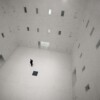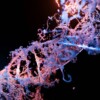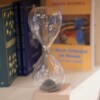
The Pope and the Professor: Pius IX, Ignaz von Döllinger, and the Quandary of the Modern Age
“How can one be a Christian scholar?” Such is the “quandary of the modern age” that is referred to in the subtitle of Thomas (Tal) Howard’s The Pope and the Professor. And in the book, the quandary is a tragedy for church historian Ignaz von Döllinger, whose scholar’s conscience fails to hold to both of twin loyalties: to the academy and to the church. Döllinger ends up excommunicated by the church he loves.
This is an excellent book by one of the most astute and prolific Evangelical scholars of his generation. After earning his Ph.D. from the University of Virginia in 1996, Howard long taught at Gordon College in Massachusetts, where he was a campus leader on issues of integration of faith and learning, before moving to Valparaiso University in 2016. While at Gordon he published seven books, with three of them (this being the third) forming a trilogy on the quandaries caused for Christian scholars by the modern university’s institutional commitment to historicism. The first book of this trilogy is Religion and the Rise of Historicism: W. M. L. de Wette, Jacob Burckhardt, and the Theological Origins of Nineteenth-Century Historical Consciousness (Cambridge University Press, 2000). The second is Protestant Theology and the Making of the Modern German University (Oxford University Press, 2006).1 With this third book, Howard expands his analysis to Roman Catholic universities in Germany and offers the tragic story of Döllinger (1799-1890) as counterpoint to the triumphal Burckhardt (1818-1897) of his first book.
Many have written on the quandaries of nineteenth-century faith and academics, especially those created by institutionalized assumptions. In Howard’s generation of Christian scholars, Timothy Larsen at Wheaton College is the other prolific author and deep student of such matters: see, for example, his Crisis of Doubt: Honest Faith in Nineteenth-Century England (Oxford University Press, 2006) and The Slain God: Anthropologists and the Christian Faith (Oxford University Press, 2014). More recently, in a younger generation, Andrea Turpin’s A New Moral Vision: Gender, Religion, and the Changing Purposes of American Higher Education, 1837-1917 (Cornell University Press, 2016) analyzes such matters from a different angle.
But most of these scholars write in English about England and the United States. The great virtue of Howard’s work is that he writes in English about Germany. It is hard to overstate the importance of Germany in the creation of the modern knowledge industry. Global structures and standards of modern scholarship, including modern American Evangelical scholarship, are modeled on structures and standards first institutionalized at the University of Berlin. Modern theology as an academic enterprise was born in the University of Berlin, where Protestants negotiated the initial compromises necessary to give theology an academically respectable role as a university department. Concerning the overall history of universities, Howard reminds us:
How a medieval creation, deemed by many an antiquated relic in the Age of Reason, managed … to become by the late nineteenth century one of the leading organs of intellectual modernity, and today a truly worldwide institution, is among the most fascinating and consequential developments in modern European history.2
What Howard wants to emphasize is that Protestant theologians in Germany, not just scientists and secularizing philosophers, played an important role in creating our modern and global knowledge industry. But such a glorious role in history came at a cost to the Christian church.
The central issue of Howard’s trilogy is the promotion of “historicism” in German universities. In order to be part of the new knowledge industry, old ways of knowing had to be honed in order to conform to new standards. This was true not just in the sciences, but also in any other discipline aspiring to be a department in the university. Essential to the new historicism was the restriction to explain things without recourse to divine revelation, divine action, or any kind of supernatural intervention. Nature, especially humanity, must be studied as self-contained systems. Howard quotes Döllinger’s student Lord Acton stating that the creation of the new German science of history was equivalent to a Copernican revolution. Most importantly for Howard, ways of knowing prominently used in the Christian tradition had to be compromised for Protestant theologians to attain their status in the new German university. Historicism’s rise, as Howard shows, was not a sea change driven by logical necessity; rather, it was an industrial revolution crafted by key people in managerial positions.
Along with historicism, German nationalism also plays a large role in all three books. The fall of Napoleon’s empire and the collapse of the Holy Roman Empire left space for a “patriotic rejuvenation of Prussian/German intellectual life and political culture.”3 Promoters of the University of Berlin were devoted to the hope that historicist research would support national unity and uplift a sense of German character. “The sole means of preserving the existence of the German nation,” Howard quotes, was through “a total change of the existing system of education.”4 Managerial decisions were made to redirect the prime loyalty of departments of theology away from the church to the state. Theologians, along with historians, philosophers, and other faculty, went along with this change in order to attain what was called academic freedom, a term that was understood as free-from-the-church.5 Patronage of that freedom would come from the state, and as patron of freedom, the state expected to be supported.
Given the entanglement of theology, historicism, and German nationalism in the newly reorganized universities, the two key figures in Howard’s trilogy are Burckhardt and Döllinger. Burckhardt was the son of a pastor who, at first, hoped to become a pastor himself. At the University of Basel, Burckhardt was encouraged to turn from his broader evangelical ways of knowing to the university’s more narrow critical historicizing of scripture and theology by W. M. L. de Wette, one of Protestantism’s most famous theologians who was working in exile from the University of Berlin. Howard quotes a letter from the young Burckhardt in 1838:
de Wette’s system grows in stature every day; one simply must follow him, there is no alternative, but every day a part of our traditional church doctrine melts away under his hand. Today, finally, I realized that he regards the birth of Christ simply as a myth—and that I do too. And I shuddered as a number of reasons struck me why this almost must be so.6
For Howard, young Burckhardt’s belief that de Wette must be right and must be followed exposed a personal and professional ambivalence that he would never outgrow. Burckhardt fully embraced the historicism of his teacher, but his future greatness as a historian would arise out of his distrust of Germanic certainty. Burckhardt adopted the new historicist theology but remained Swiss at heart. Although Burckhardt declared himself an “honest heretic,”7 Howard, throughout the whole trilogy, shows the weakness of Burckhardt’s claim to honesty. The claim was not a virtue-driven choice for reason over religion; rather, it was an almost inevitable result of his indoctrination in the methodological historicism encouraged by state patronage of theology at the new universities.
With the account of Döllinger in The Pope and the Professor, Howard gives a Roman Catholic take on the effects of the new historicism’s certainties that were supported by German nationalism. Burckhardt was attracted, but remained ambivalent. Döllinger, on the other hand, embraced historicism and German nationalism, but because of it, found himself unable to speak into the greatest question put to his church in that era: papal infallibility. Ignaz von Döllinger was considered in his own lifetime to be one of the greatest Roman Catholic theologians and church historians. “Döllingerites” and even “Döllingerism,” Howard tells us, “emerged as shorthand expressions to refer to central European Catholic opposition to the decrees of the Vatican Council.”8 Döllinger was often portrayed in the popular press as another Martin Luther. Döllinger himself and many others have described ongoing opposition to the church’s decree as a matter of conscience, but Howard sees a much broader story in the matter, and even a much broader way of understanding appeals to conscience by Christian faculty deeply committed to historicist methods. As the third in Howard’s trilogy, The Pope and the Professor is a psychological thriller about a great moment in global history when one of the greatest of popes, Pius IX, personally affronted by political developments in Europe and using scholastic reasoning methods, went head-to-head against a widely influential professor, Döllinger, who was so deeply committed to historicism and German nationalism that he felt conscience-bound to fight the church he loved.
Of course Tal Howard is no Dan Brown. This thriller is intellectual history at its footnoted best. Howard writes (ironically?) well within the standards of the knowledge-industry which were set by the historicism he studies. There are two threads upon which his story hangs. The first is the pitting of a scholastic method of theology against a historicized method. The second is the grayness of scholarly declarations of intellectual conscience.
As for the first, the scholastic theology on the rise during the nineteenth century in most Roman Catholic institutions of higher learning was neo-Thomism, an optimistic Christianized Aristotelianism. “For although faith is above reason,” Howard quotes Pope Pius IX spouting a neo-Thomist maxim, “no real disagreement can ever be found between them; this is because both come from the same greatest source of unchanging truth, God.”9 Although Howard handles neo-Thomism with great sophistication and subtlety, it can most simply be characterized as the opposite of historicism. Howard shows its use in undergirding the twin doctrines of greatest significance to Pius IX: the assertions of the Immaculate Conception of Mary and Papal Infallibility. Döllinger, a promoter of German industrial standards of knowledge among Catholic institutions of higher learning, insisted that these two doctrines lacked any evidence that was convincing by historicist standards. An expert on the history of the papacy, Döllinger could also offer as evidence a wide variety of contradictory statements by popes and awkward stories of popes acting as fools and even rogues. Döllinger thought that the neo-Thomist tradition was erroneously dependent upon divine revelation rather than what historicists would agree were facts.
As for the second, Döllinger’s appeal to conscience and his heroic/tragic refusal to perjure himself was honorable by the standards of both nineteenth-century academic liberalism and neo-Thomism. Howard quotes Thomas Aquinas that an appeal to one’s conscience, even if an erroneous or mistaken conscience, can be considered noble and a mitigating factor in a court of judgment. On the other hand, everybody involved was conscientious. The pope and his theological supporters were not being intellectually duplicitous or sneaky. Howard quotes from correspondence between John Henry Newman and Döllinger and compares their different appeals to conscience after the decree of papal infallibility. Döllinger need not have been excommunicated. The trouble was his public and ongoing insistence to the point that it is not surprising to readers that a pugnacious pope decided to have him excommunicated. What the reader takes away is not that Döllinger was wrong; rather, that he was so fanatically committed to the new historicism and German nationalism of the Germanic university system that he thought he was appealing to immutable laws of logic. Döllinger had only scorn for what were solid alternative traditions of Christian thinking. Howard quotes Döllinger describing the doctrine of papal infallibility as “positively monstrous.”10
Howard does not offer a “concluding unscientific postscript,” but any reader today, when finished with the last page, is going to set down the book, lean back, and ponder obvious ironies. Döllinger thought that the papacy was shooting itself in the foot. In that age of progress, the pope was withdrawing from any intellectual authority in the world. Döllinger himself was confident that historicism would be embraced by all universities and that German nationalism would be at the forefront of creating a better world. Döllinger plays the fool in the book. Today we live in the great age of the papacy. Modernism has given way to postmodernism. Universities and books by university presses today promote critiques of historicism. And German nationalism, of course, was twisted to tragic ends.
As a trilogy of books, Tal Howard has produced an insight-filled epic about the beginnings of the modern knowledge industry. Importantly, it is not a triumphal story of science and secularization; rather, it is a story of Christian theologians, philosophers, and historians, and of their negotiations with state-sponsored historicism. Christian scholars working in the educational institutions of American evangelicalism will find much to reflect upon in this trilogy. Howard helps us remember, for good and ill, the rock from which we are hewn, the quarry from which we are dug.
Cite this article
Footnotes
- Reviewed by Glenn Sanders in Christian Scholar’s Review 37 (2007): 132-134.
- Howard, Protestant Theology and the Making of the Modern German University, 5.
- Ibid., 141.
- Ibid.
- Ibid., 222–239.
- Howard, Religion and the Rise of Historicism, 131-132.
- Ibid., 5, 133.
- Howard, The Pope and the Professor, 6.
- Ibid.,44.
- Ibid., 154.
























One Comment